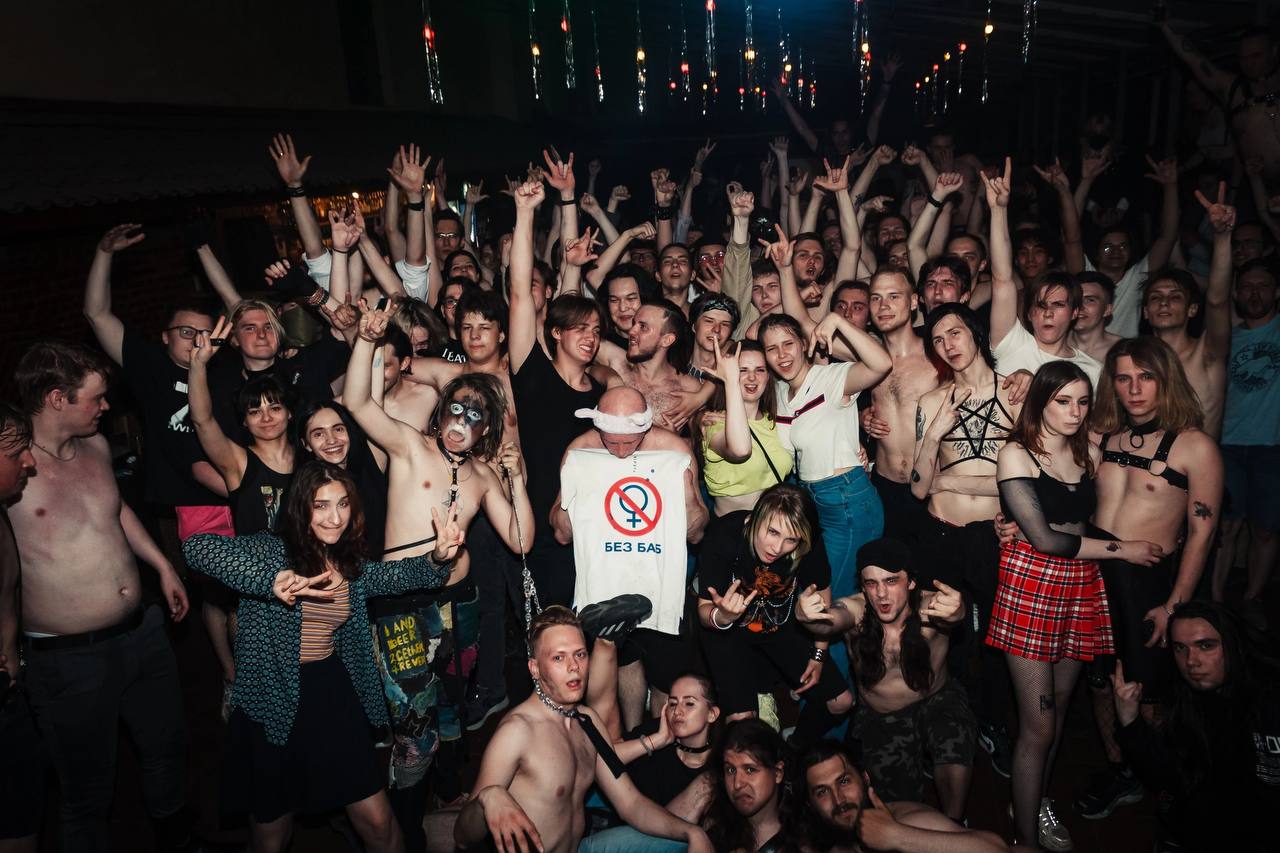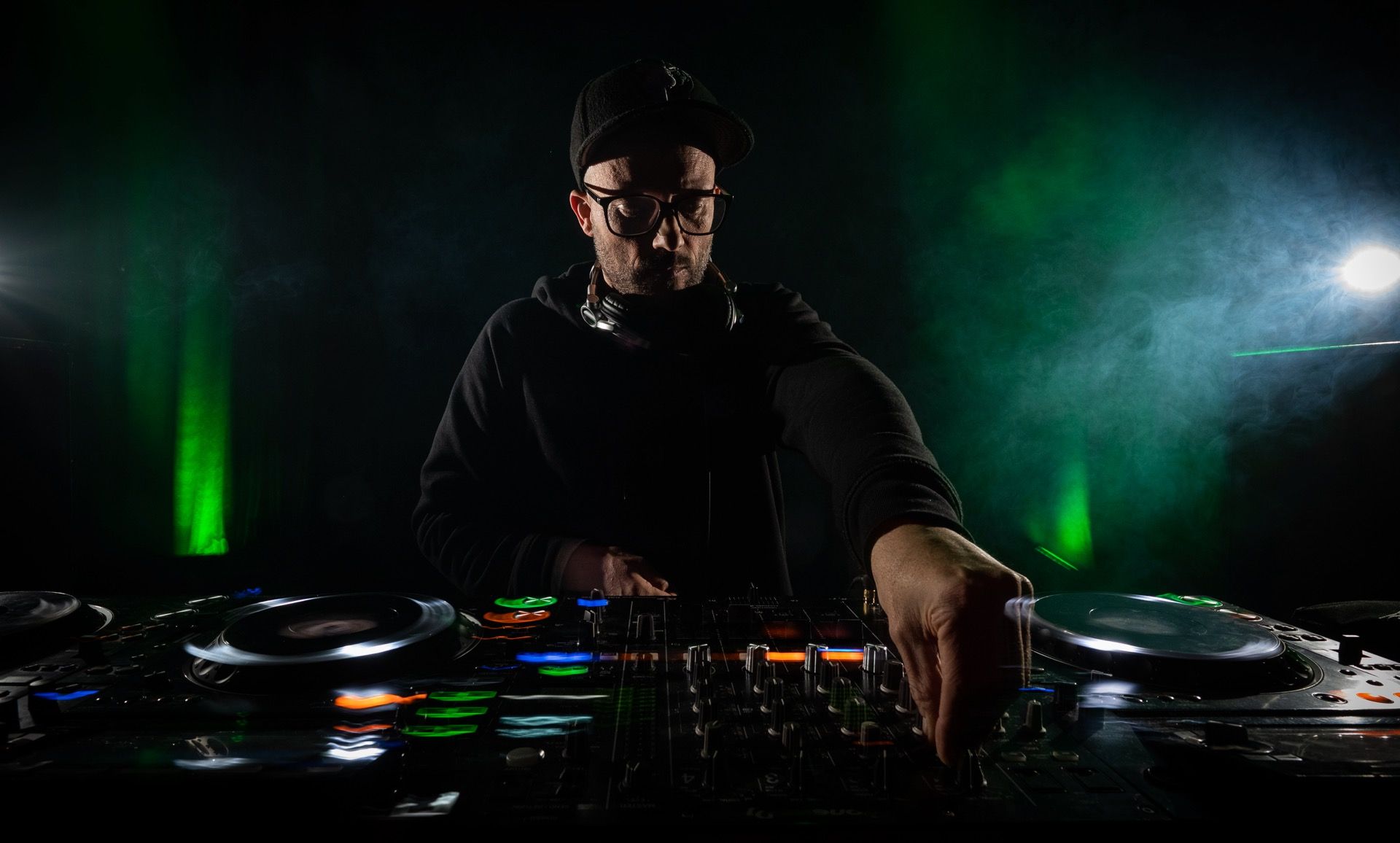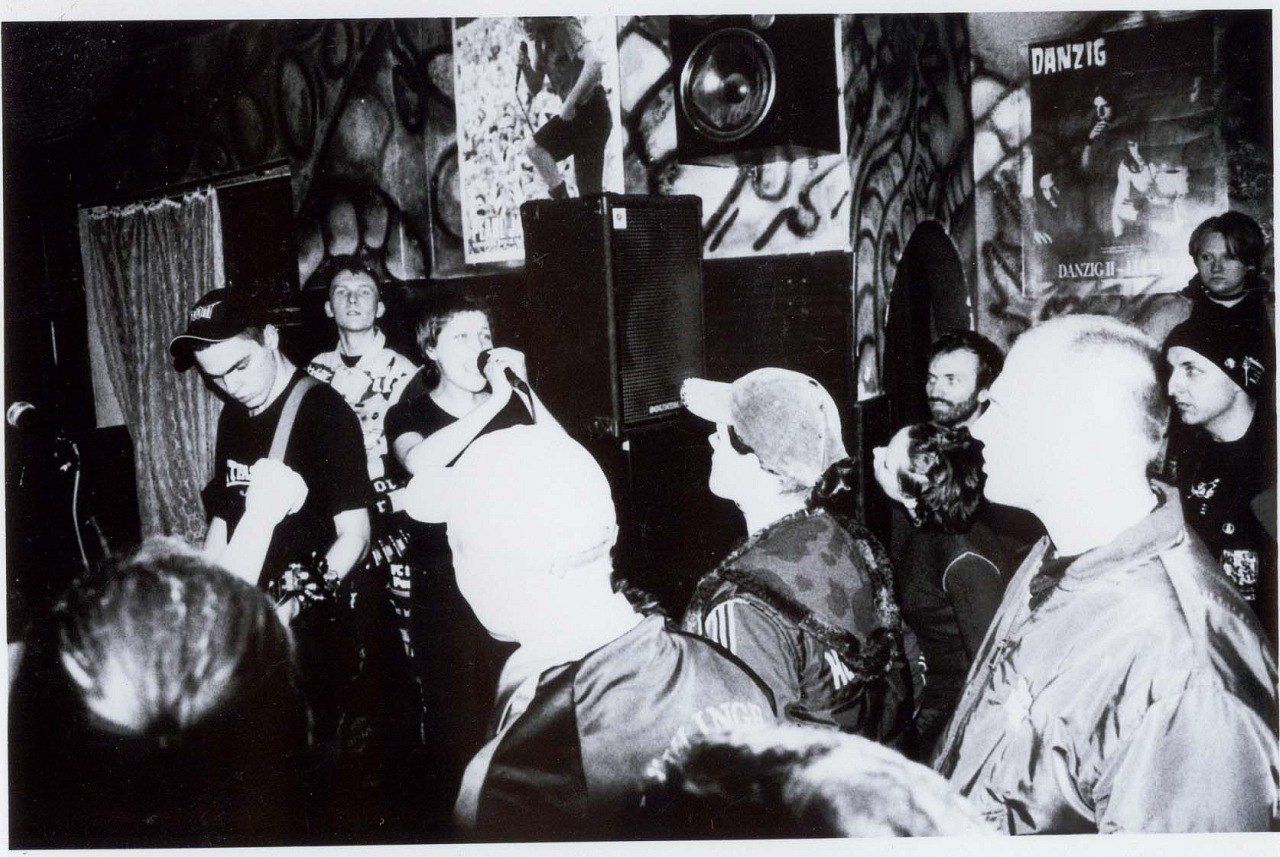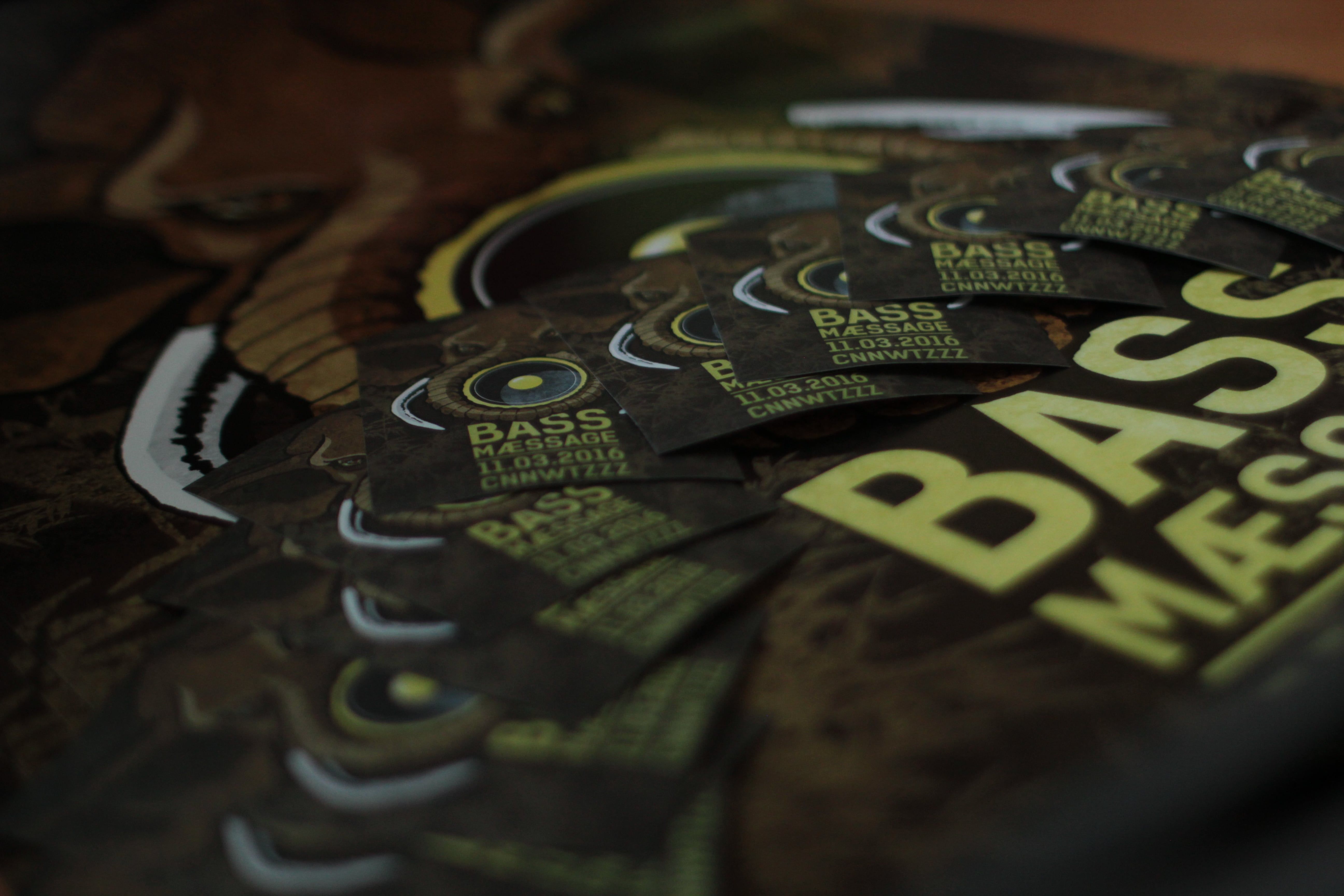Podpolnyj Vestnik – the voice of the Belarusian underground
We have a chat with the music blog's creator, Arciom.
Today, we are joined by Arciom, a musician, promoter, and author who runs Podpolnyi Vestnik (Underground Herald) – Telegram channel about the Belarusian underground scene. Arciom is also the founder of the label Podpolie 375 (Underground 375) and, on top of that, he’s published a few books about the Miensk music scene and his experiences as a promoter. We had a chat with him about the "samurai path" of being a promoter, the current state of the Belarusian scene, and how to organize a concert tour across Belarusian cities for a cardboard cutout of Van Darkholme.
You can listen to the full audio version of the interview in Belarusian and Russian as part of the Radio Plato Editorial Podcast:
<iframe width="100%" height="166" scrolling="no" frameborder="no" allow="autoplay" src="https://w.soundcloud.com/player/?url=https%3A//api.soundcloud.com/tracks/1914509378&color=%23ff5500&auto_play=false&hide_related=false&show_comments=true&show_user=true&show_reposts=false&show_teaser=true"></iframe><div style="font-size: 10px; color: #cccccc;line-break: anywhere;word-break: normal;overflow: hidden;white-space: nowrap;text-overflow: ellipsis; font-family: Interstate,Lucida Grande,Lucida Sans Unicode,Lucida Sans,Garuda,Verdana,Tahoma,sans-serif;font-weight: 100;"><a href="https://soundcloud.com/radioplato" title="Radio Plato" target="_blank" style="color: #cccccc; text-decoration: none;">Radio Plato</a> · <a href="https://soundcloud.com/radioplato/radio-plato-editorial-podcast-121-w-arciom-podpolny-vestnik" title="Radio Plato - Editorial Podcast #121 w/ Arciom (Podpolny Vestnik)" target="_blank" style="color: #cccccc; text-decoration: none;">Radio Plato - Editorial Podcast #121 w/ Arciom (Podpolny Vestnik)</a></div><h2>"I was asked to never show my face in the place again"</h2>– How did you first get into music?
– The beginning of the story is nothing remarkable, because I think for most people involved in instrumental music, the stories are more or less the same. It all starts for me in middle school: the rise of instrumental music in neighboring countries, heavy music, and alternative rock – bands like Stigmata, Origami, Amatory, and Jane Air. My first musical interests culminated with me walking around school, playing rather gloomy tracks from the speaker of my cell phone. That is also when I had my first attempts at beatmaking which helped me understand how music is structured.
I started going to live music shows at around 13. My first was Russian nu-metal band Psychea unplugged in Reaktor club. Then I saw a concert of local deathcore bands in R-Club and it was amazing. I would listen to music like My Bloody Valentine at that time. I realized that there is this local scene and I started wanting to become part of it.
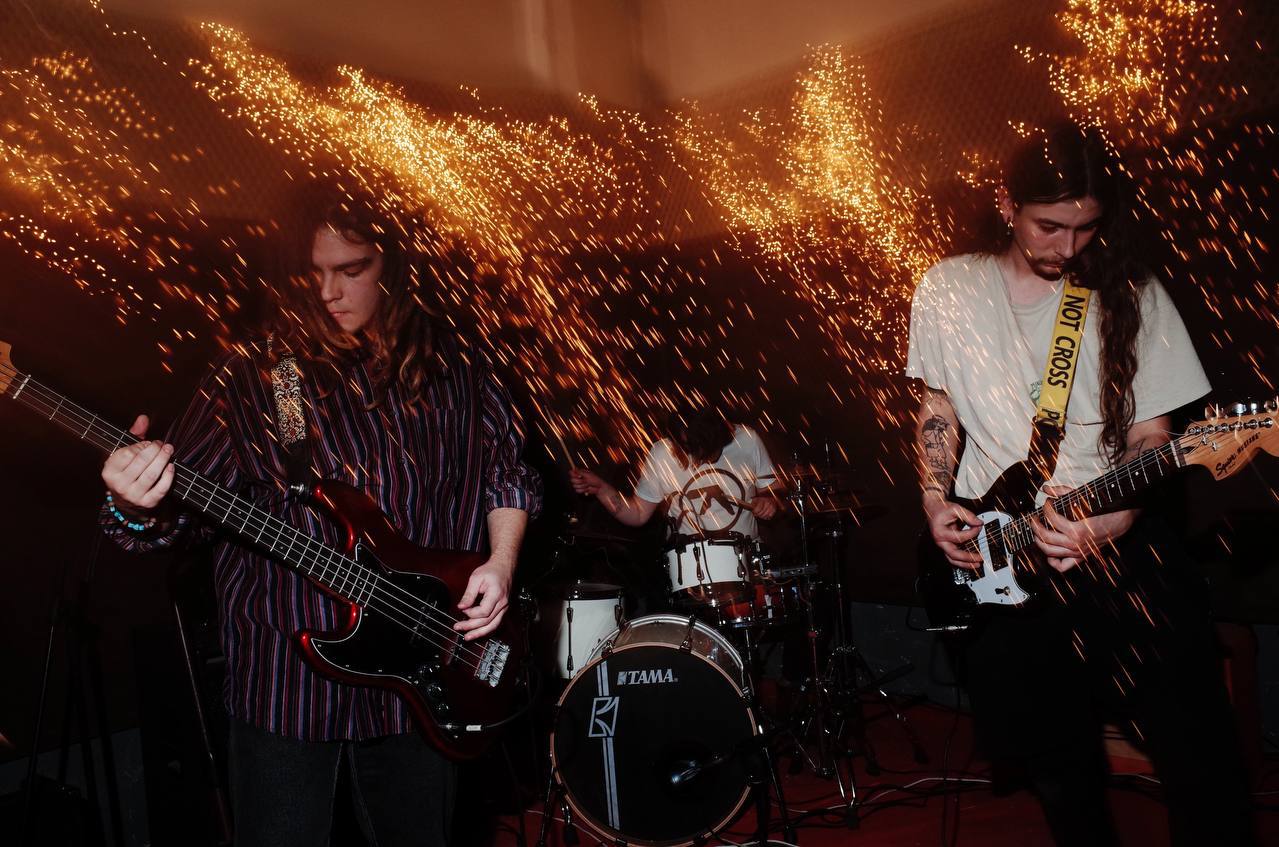
I formed my first band in high school, where my friends and I played fairly simple pop-rock songs, mainly because our instrument skills didn’t allow us to play anything more complex. At that stage, we really only had one talented musician in the group, our vocalist. We saw that girls liked our songs so we decided to book a gig in Jolly Roger. It was tough to book a gig though. We were given out 20 tickets to sell so we could join the lineup. We ended up selling our share of tickets easily, but overall those were dreadful gigs with horrible lineups. That was around 2012. Eventually, I got tired of it, and started playing screamo with a different group of guys. But it was tough too – no one would book us, because we were still a bunch of high-school kids. It seemed like the only solution was to start organizing your own shows.
I stumbled upon an ad saying that the rock bar Krylja was renting out its space for 200,000 rubles (~$25 at the 2012 exchange rate – editor's note). So I – a fifteen-year-old – negotiated with the bar and started organizing concerts. For my second live show ever I invited an out-of-town band. -1 from Tula, Russia – a then little-known but promising emo-punk band. I bet they were expecting a professionally organized gig, until they saw us at the train station – a bunch of fifteen-year-old kids. But anyway, all was going well, until during Challenger Deep's set fire alarm went off in the club. There was no way to shut it off without calling the fire brigade, so we just cut the wire. But eventually we got in trouble for something else entirely. Some punks in attendance trashed the bathrooms and broke toilets and sinks. Then the next day I was very politely asked to never show my face in the place again. Probably because I was just a teenage kid. That's how it all started for me.
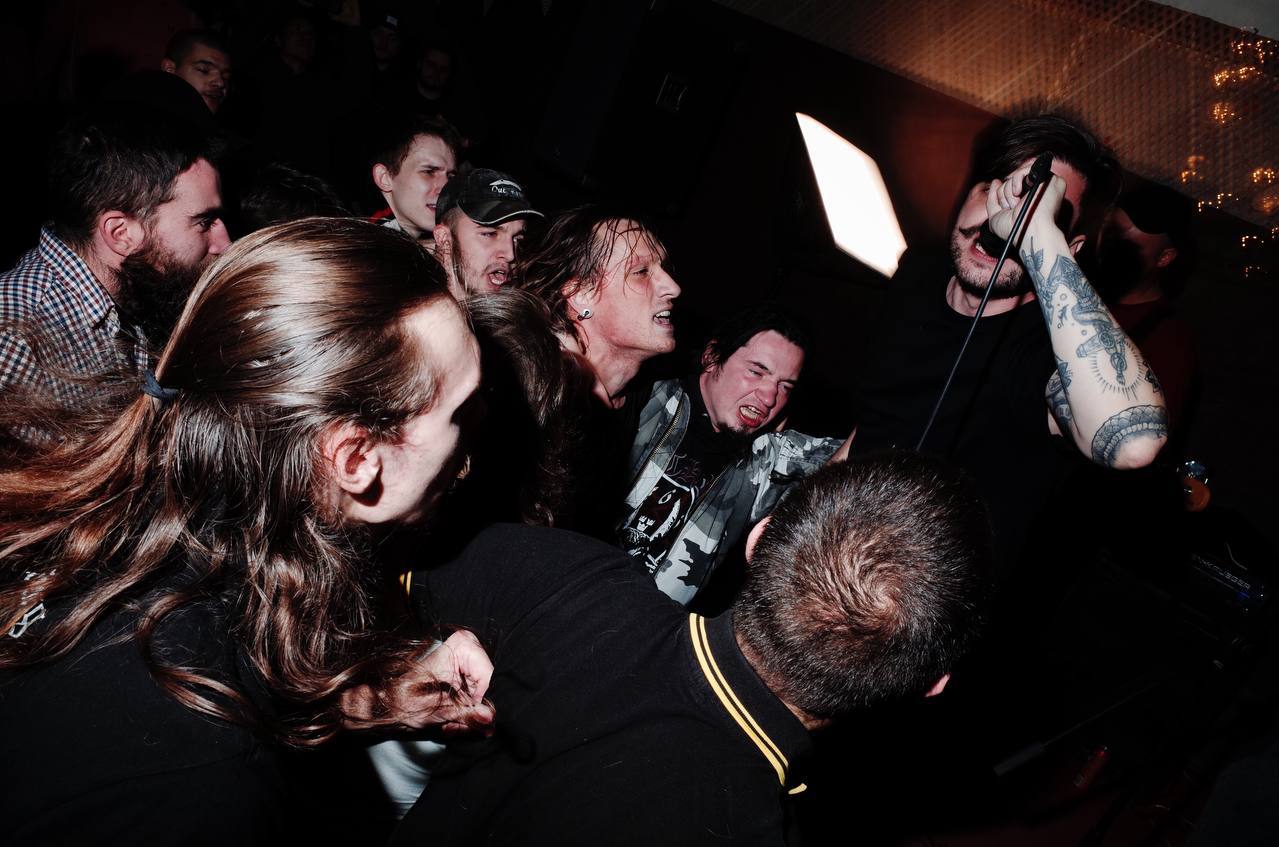
Organizing and promoting rock shows quickly became the most interesting thing in my life, way more fun than school or just rehearsing with my boys. Plus, organizing your own show turned out much simpler than getting booked. So, then I went to the club Saltime and they graciously gave me Thursdays to do post-rock gigs. Our first show there gathered around 30 people, which was less than we had expected, but the vibe was fantastic.
From then on the places would change. From Saltime, then renamed to Ili, to Rocker Bar on Tałbuchina Street, and various other places, not always best suited for rock concerts. All the time I was observing huge crowds coming to foreign bands' shows and wondering how we could attract audiences that big to local shows. So I decided to invite a foreign headliner and five local warm-up bands. I can't say that I brought in a new audience with those gigs. These people were already part of that scene; but I saw them start gradually coming together as one community. The sense of unity that it created was really cool.
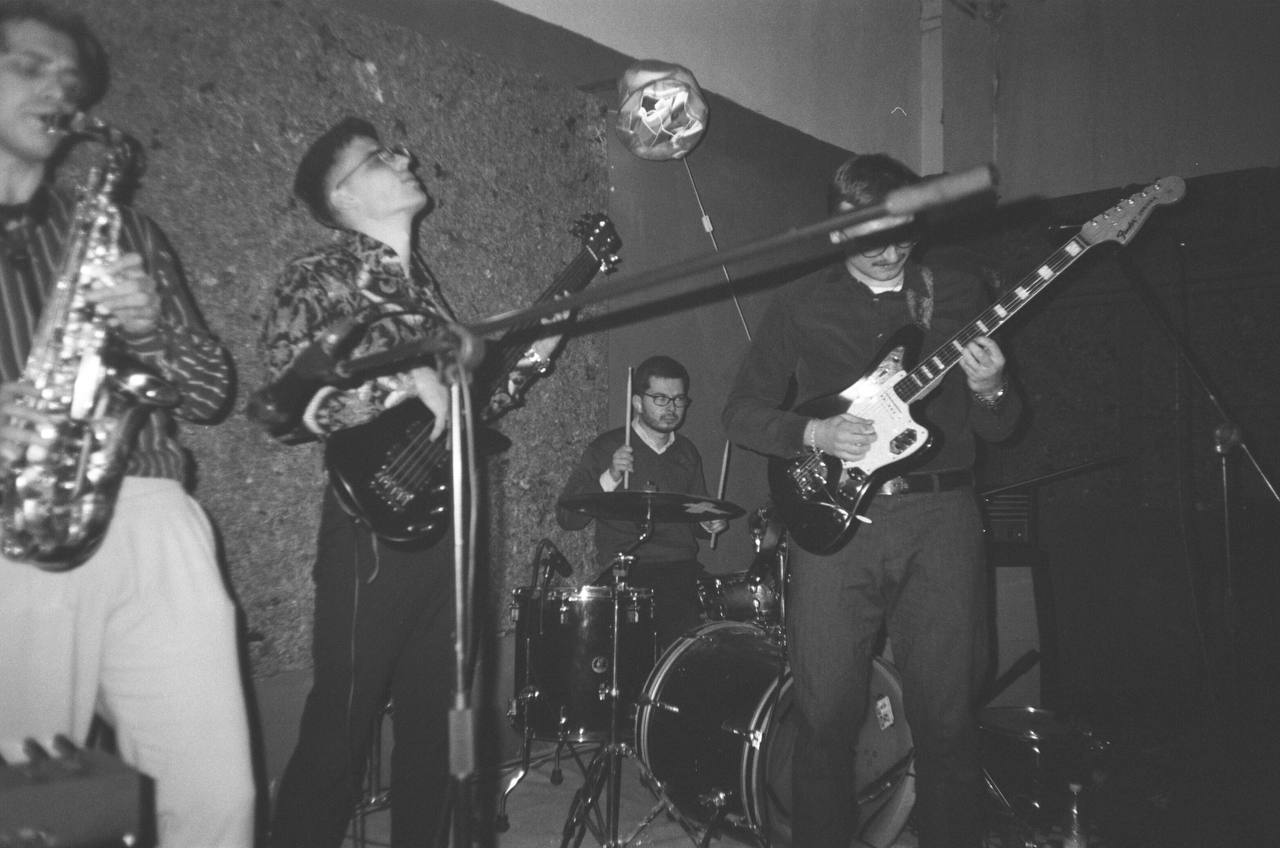
– People often think that organizing and promoting shows is somewhat of a thankless job, with the bands getting all the recognition.
– It really depends on what you expect from it. I can't say I was in it for some kind of glory. I just wanted to be part of the scene, to be involved in it. And organizing shows turned out to be rather simple when you break it down. All you gotta do is book the bands, sort out the details with the venue, make a poster and you're done. Advertising was mostly word-of-mouth back then, not really requiring any special efforts. We saw it as a way to distract ourselves from the daily routine and have fun. The venue rental conditions would vary from gig to gig. Sometimes you agreed on a fixed price, sometimes you shared the door with the club.
I’m still involved in promotion to this day, although on a smaller scale due to certain challenges in present-day Miensk. I did very few shows this summer, for example. Nonetheless, I try to organize at least some shows in Miensk, as well as other cities around the country. Every event comes with tons of cool stories, and whenever I travel to Georgia or Poland, I always try to set up some concerts there too. I recently did a few interesting shows in Warsaw, which I hope to continue in the future.
<h2>Concerts chronicles</h2>– In addition to organizing rock shows, you also document them in writing. You have put out several books about scene life, touring and gigs. How did you get into writing?
– Of course, it all began with writing song lyrics. Then, at a certain point, I got fired from my day job and got a ton of free time. That's when I first had an idea to work on a book. I realized I've been wanting to write since childhood, but had no idea what to write about. I felt that writing good fiction would be hard, so I decided to write about my own experiences.
I wrote about going on tour with a band to Russia. A road-non-fiction of sorts, each chapter covers a separate stop on our tour. The book is titled simply Tourlife, and that's precisely what it covers. Then I had a touring dry spell, so I had to look for other book ideas. I decided to recall the best stories from the live shows I organized.
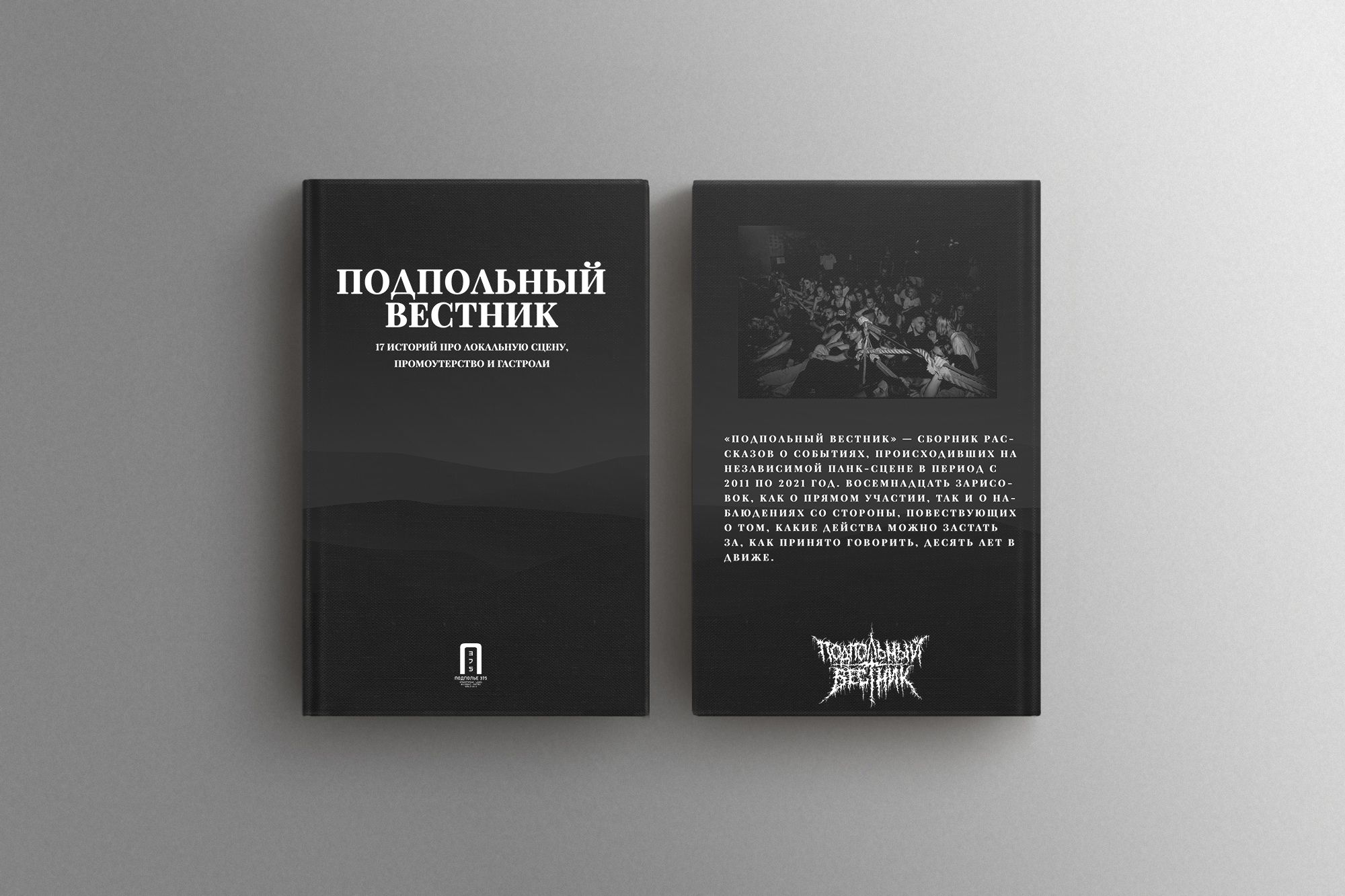
That's how my third book Podpolnyi Vestnik (Underground Herald) came to be, which is a light read about my concert adventures, although it also reflects on the development of the Belarusian scene at the time a bit. My second book is just a collection of lyrics for one of my musical projects, not much interesting about it otherwise.
Somewhere along the way I found out that DIY book publishing is very much a thing. I had to dig through a ton of info on how to do it best first, though. So, once I had it figured out myself, I started helping other up-and-coming authors. Check out Podpolie 375 on Instagram and VK.com for the full catalogue of books I published. I found a small printing house in St. Petersburg that specialized in gift books, and negotiated a small print run with them. Editing and book layout design was quite a process, because I had to do it all myself. Nonetheless, about a month later I had the printed books in my hands, which felt amazing.
Of course, the whole process of self-publishing looks intimidating to young authors, especially compared to publishing your music nowadays. But it's definitely doable, and I'm open to sharing tips and best practices from my own experience with anyone interested.
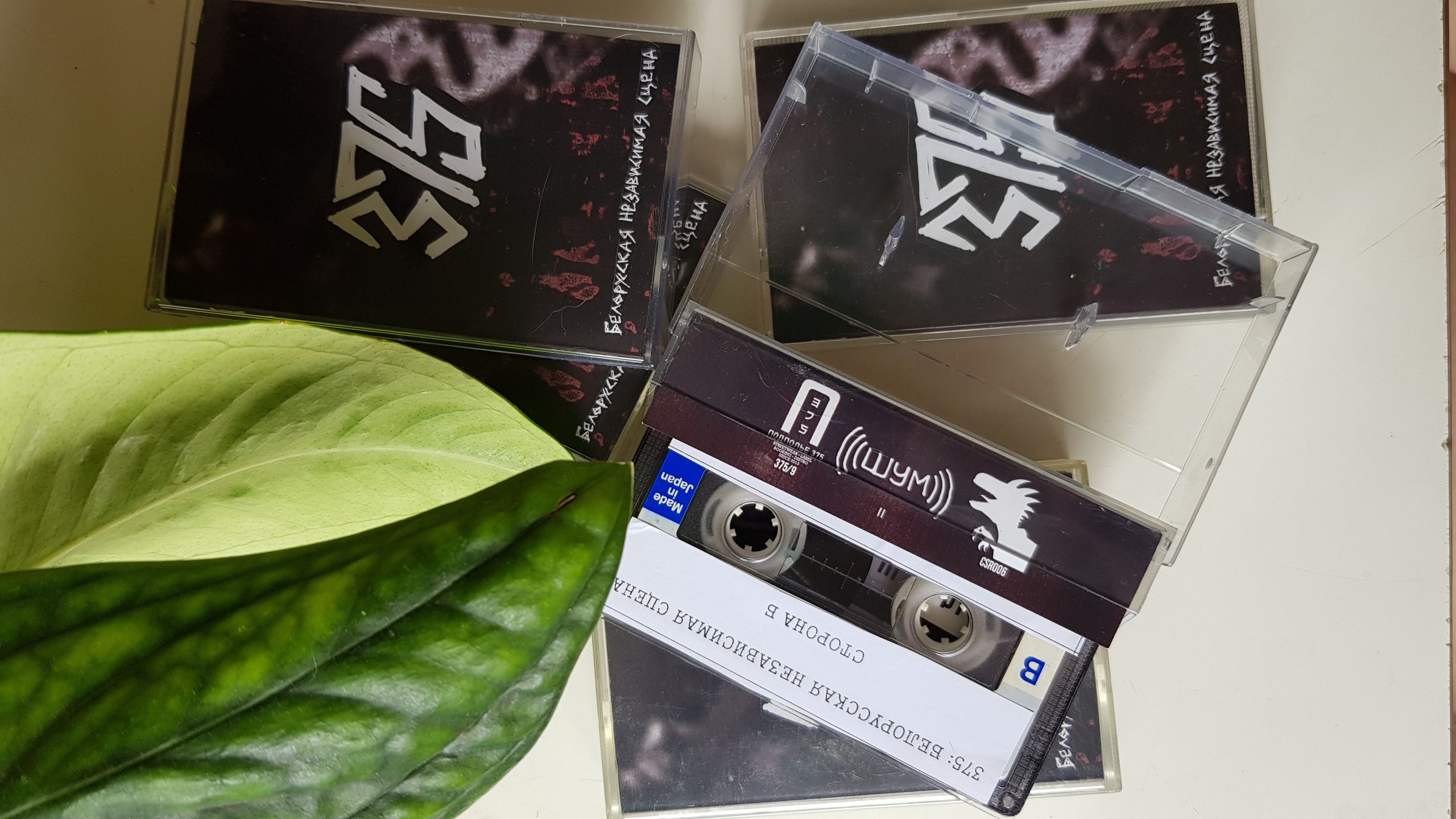
– When we started Newsroom on Radio Plato, we were kind of surprised to find out how many new releases are put out by Belarusian artists nowadays, compared to a few years ago. What's your view of the current state of the local scene?
– I first reflected on that myself when we started doing our monthly live streams. We figured it wouldn't be too difficult to just listen to all the releases of the past month. I was thinking of maybe 10-15 tracks per month, as I tend to cover only the stuff I like in Podpolnyj Vestnik. But, when I saw the spreadsheet of new releases to cover filled out by my team-mates, I was stunned to see about 60 tracks that we had to audition in one go. It's not a definitive number by any means. Of course, we cannot cover literally everything, things get lost in the shuffle. I can't really say whether there has been more or less Belarusian music in the last couple of years, simply because I don't know the exact numbers from before 2020. But it definitely feels like there is more new music now.
<iframe width="560" height="515" src="https://www.youtube.com/embed/u_UZnZXQyCI?si=bI9D_Ob_dwpTdvWZ" title="YouTube video player" frameborder="0" allow="accelerometer; autoplay; clipboard-write; encrypted-media; gyroscope; picture-in-picture; web-share" referrerpolicy="strict-origin-when-cross-origin" allowfullscreen></iframe>Especially, if you include Belarusian artists currently residing abroad. But there is a certain dynamic inside the country too: musicians who have left make room for new ones, and many young artists are now starting their creative journeys. Hence, the total combined number of Belarusian musicians abroad and at home is growing. And, as always, people from bands form new bands together with people from other bands. There's a few nice recent examples of that in Warsaw. Overall, they have a very cool Belarusian scene there, with enough good bands and an audience.
And the situation in Miensk got a little better lately. There was quite a downturn in early 2023, when almost all rock venues were shut down, leaving the only place for organizing concerts - Growling Bar, located close to the former Lo-Fi. It has been closed since too, unfortunately. So it was all looking pretty grim, until some time later things started opening back up. Such clubs as Brugge and the legendary Reaktor re-opened. At this moment, there is a few good rock venues in Miensk, which is of course way fewer than, say, Warsaw or Moscow. Another thing is, the amount of venues is not the biggest issue. There is a huge amount of red tape involved in organizing events these days.
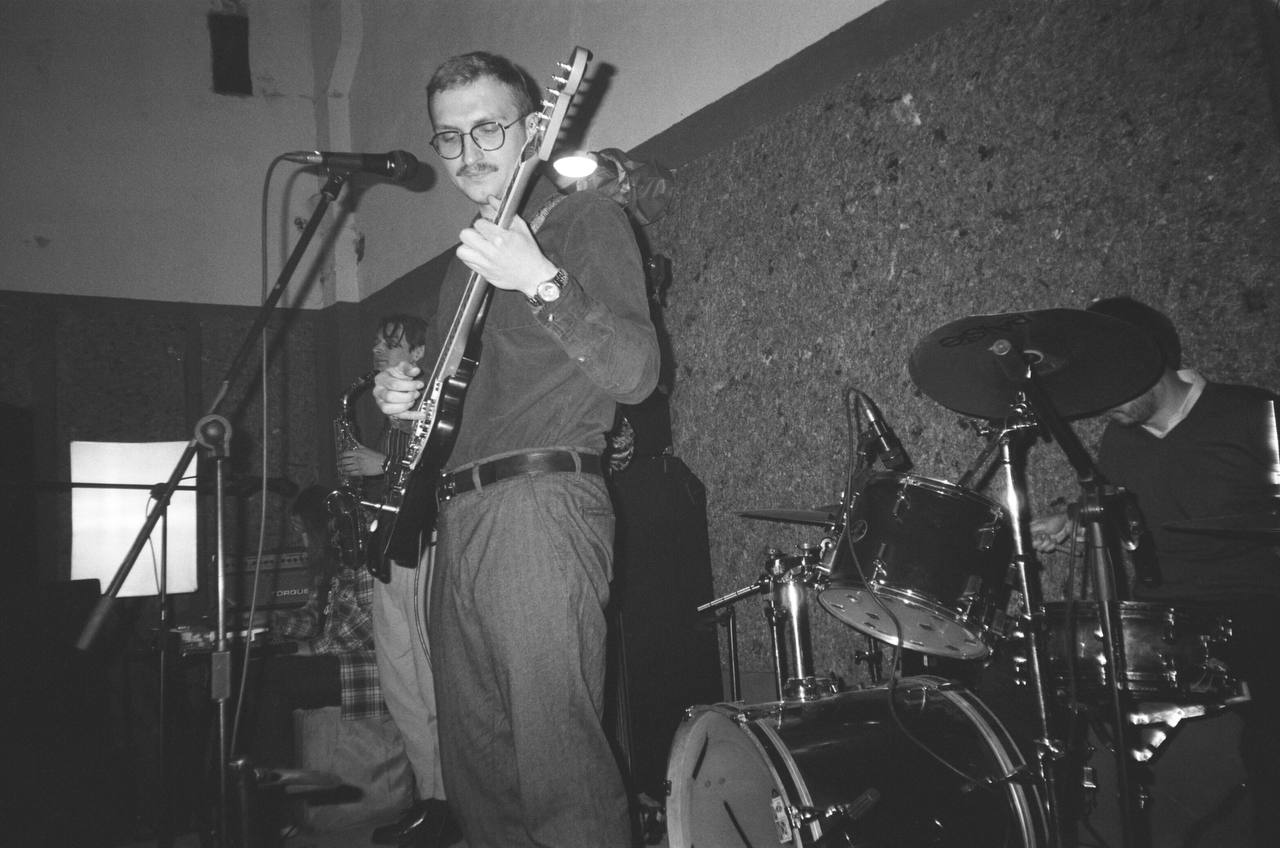
– I wanted to ask you about the media. How do people find out about new releases of the local scene nowadays? Where do you look for that stuff?
– I think it's a variety of channels, including social media. Music journalism is not very developed in Belarus, unfortunately. Of course, there is Radio Plato, and media like Klik, but you have to admit they serve rather niche audiences. We all do, and it's a very altruistic endeavor. You basically need a team that would volunteer to do this work and also have the skills and enthusiasm to do it. But I'm glad to cover the music that does not make it to more mainstream media. We all do our part in covering the Belarusian scene, and the more people are doing it the better.

– Tell us about your band.
– We created ZAO Somnitel'nye Iniciativy (Questionable Initiatives Ltd.) quite spontaneously when I met up with my old friend promoter Egor Bobov in Tbilisi. We were throwing around some old demos and all of a sudden, we put together an album while hanging out on a balcony on a whim. The main idea was just having fun, without any serious concepts behind it. Later we started collaborating with other artists, which, sadly, is not very widespread in Belarus. We just keep making new songs and having fun while doing it. ZAO Somnitel'nye Iniciativy represents the sound of a carefree lifestyle and a reluctance to burden oneself with too many problems or excessive thoughts. Music to mong out to.
<iframe style="border-radius:12px" src="https://open.spotify.com/embed/artist/10OkxuymqQbYI6fpkK51Lx?utm_source=generator" width="100%" height="352" frameBorder="0" allowfullscreen="" allow="autoplay; clipboard-write; encrypted-media; fullscreen; picture-in-picture" loading="lazy"></iframe>– Another thing I wanted to touch on is the so-called Gachi-parties I heard you organized?
– Oh yes, quite an interesting episode in my promoter journey. The first Gachi in Miensk was a totally spontaneous idea. It all started when I was hanging out with a friend of mine, who kept saying that my book was trash. We were smoking in the courtyard of my building when we had the idea for this thing. It was meant to be a small party for friends in the cult Graffiti club in Miensk. It was the time when Gachi-mixes were all the rage, so we decided to have a virtual Gachi DJ play them all night.
The first event exceeded all our expectations: way more people showed up than we anticipated, and among them were not just acquaintances but also complete strangers who dressed and acted the part. The neighbors complained about the loud music and called the police. But, somehow, when the cops arrived and saw our guests in leather and latex smoking outside the club, they simply drove off, deciding it wasn't worth getting involved.
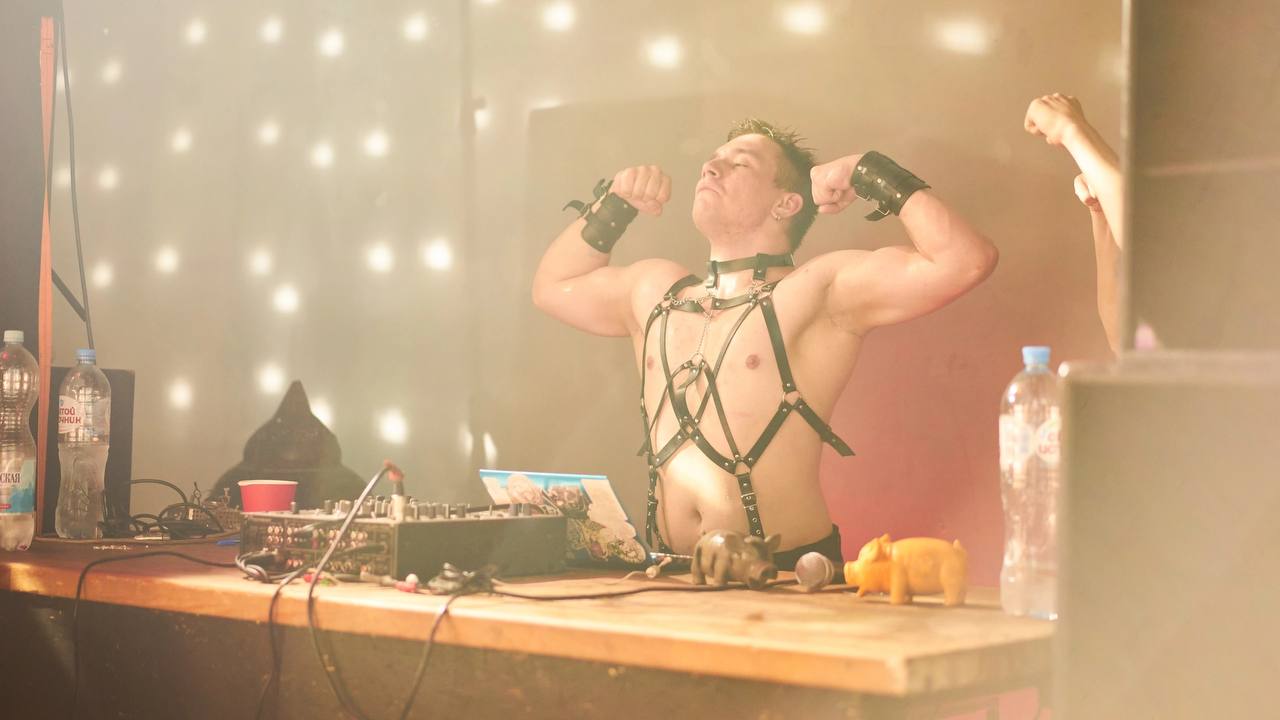
It was definitely an interesting phenomenon – a subculture of unparalleled freedom of expression arising out of a meme. People saw this part as an opportunity to express themselves and ran with it. So then we planned the next Gachi party in a bigger venue – Berlin club. The audience is growing, weirdness and fun factor is escalating.
After a few of those, we decided it was our time to spread the Gachi gospel to the outside world, as nobody else would do it, starting from Moscow and St. Petersburg. We managed to get Van Darkholme – the most well-known Gachimuchi actor – to record a promo ad for us, which got viral and eventually attracted 350 people to our first party in Moscow.
Those parties were a hell to organize, with a ton of details to take care of. From coming up with Gachi-themed coctails and games to lugging around those life-size cutouts of Gachi DJs. They would be constantly getting injured and subsequently fixed up, while some didn't make it to the next show. In a word, each party was a ton of effort, it was physically quite demanding, but the satisfaction from making such a weird quirky thing happen was immense. You're not just organizing a rock gig; you're making something so off-kilter and new on a totally absurd premise. Something nobody has ever done or will ever do. Totally fun, totally weird. And financially it was finally somewhat rewarding, due to the amount of people showing up and parties taking place in better venues.
Eventually, we decided to organize a tour of Belarus for one DJ Bidon, personified by one of the surviving life-size Gachi cutouts. We played in Baranavičy, Horadnia, Homiel, Bieraście and Viciebsk, often catching the crowd by surprise with our program of the night. The clubs' art directors were in on our scheme, while the public was often left in the dark, expecting an actual DJ. We really wanted to prove that if we can organize a tour for a piece of cardboard, then any Belarusian musician, with enough determination, can absolutely pull off a big tour across cities in their own country. This is the episode that opens up the Podpolnyi Vestnik book. It's a fun read, highly recommended!
